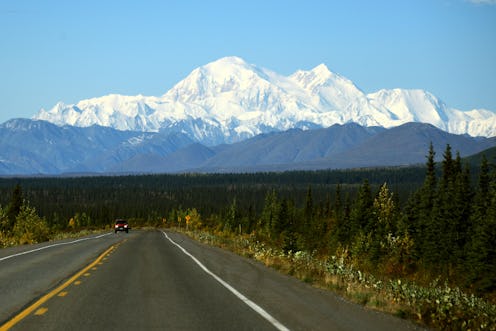News
Making The World Less Terrible, One Name At A Time
Even though Donald Trump is over "politically correct crap," America sure isn't. 2015 was a great year for anyone concerned with how public roadways, institutions, holidays, or diseases have the potential to symbolize even rougher periods in American and world history when slavery, conquest, and subjugation were the norm. The move to change offensive monikers for public places and things made some great leaps this year — even if much more renaming needs to be done.
This process has been going on for a while. With regards to geography alone, some of the old names are unbelievable. At a federal level, the U.S. Board on Geographic Names, has a policy that excludes derogatory names and slurs. But it wasn't until 1962 that the board removed the N-word from federal maps, replacing it with "negro." The derogatory, shortened version of "Japanese" wasn't banned until 1974. "Sometimes names that were appropriate to society no longer are," Lou Yost, the executive secretary of the board, told the LA Times in November.
But, there's still lots of work for them to do. The website Vocativ tallied and mapped the offensive and derogatory names in use across the country. There are at least 1,441 federally recognized places with slurs in their official names. Others would draw attention to the mascots of college and professional teams (like the Washington Redskins) who refuse to rename the team, despite losing trademark protection due to the name's offensive nature. But even though it's important to acknowledge the work that remains unfinished, there has been progress.
President Barack Obama Highway
A Florida road was renamed after the president to replace a name from an uglier time. "Dixie Highway" was deemed by Riviera Beach, Florida, residents to be honoring the era of slavery. The mayor, Thomas Masters, told WPTV, a local TV station, that the old name was "symbolic of racism, symbolic of the Klan, symbolic of cross burnings and today we are stepping up to a new day, a new era."
Springer Boulevard
As the battle to remove Confederate flags has raged on, Little Rock, Arkansas, has gotten rid of Confederate Boulevard once and for all. Most of the street had already been renamed Springer Boulevard but the final four blocks changed too, after residents reacted to the Charleston, South Carolina, church shooting carried out by a white supremacist in June.
The Next MERS, SARS, Spanish Flu, Etc.
It's not just places that can have offensive names. In May the World Health Organization called on scientists to take care when naming infectious diseases so as not to disparage regions (the Middle East, South Asia, or Spain for example). They didn't technically rename any old diseases though. The policy affects new outbreaks only.
Carolina Hall
University board members changed the name of an academic building at the University of North Carolina at Chapel Hill. Formerly known as Saunders Hall, it was named after a Ku Klux Klan leader from Reconstruction. The school also passed a 16-year moratorium on renaming other buildings, though, just in case they find some other racists' names emblazoned on other buildings.
Indigenous Peoples Day
Holidays can be painful, too. Take Columbus Day for example, which honors a guy who massacred countless native people in the Americas. Alaska may just be the first state to make the change. In his proclamation, Alaska Gov. Bill Walker wrote, "Alaska is built upon the homelands and communities of the Indigenous Peoples of this region, without whom the building of the state would not be possible."
Howard Lake & Howard Creek
A lake and creek in Washington State were renamed in October after an African-American prospector who visited the area in the 1890s. The former names, Coon Lake and Coon Creek, were criticized as racist slurs. "This name change is a small but important step toward correcting a historical wrong in our state," Sen. Patty Murray of Washington State told the Seattle Post-Intelligencer.
Denali
The highest peak in North America was renamed by President Obama in August by executive order in an attempt to improve relations between Native Americans and the federal government. Formerly known as Mt. McKinley, the new name is actually an old one. Native populations in the area have called it Denali for generations.
There's of course much more to be done in 2016. Stay tuned and keep your eyes on road signs near you.
